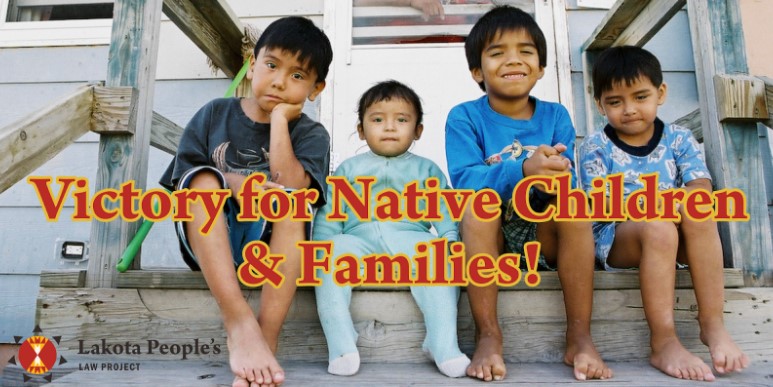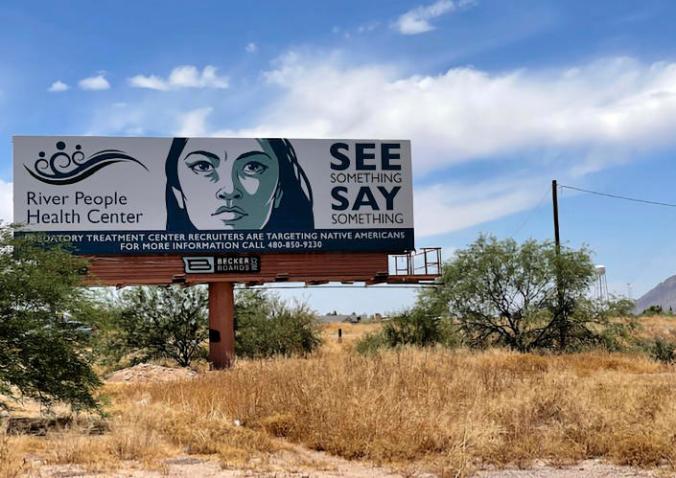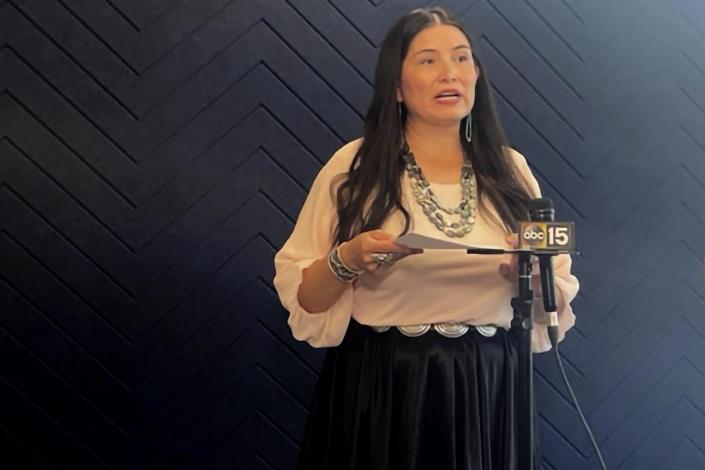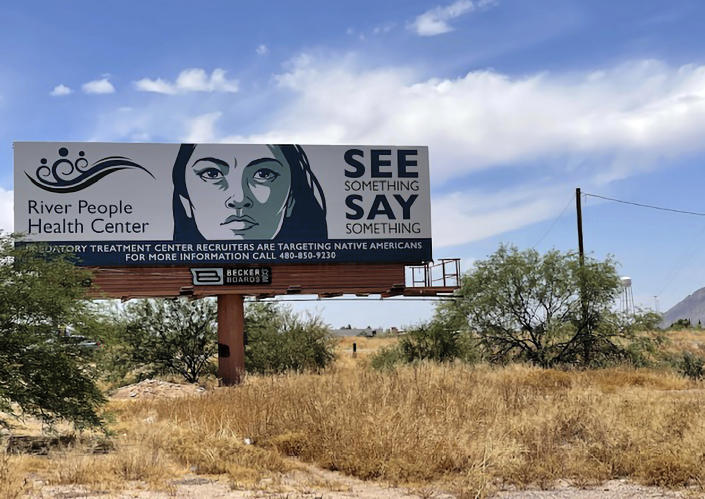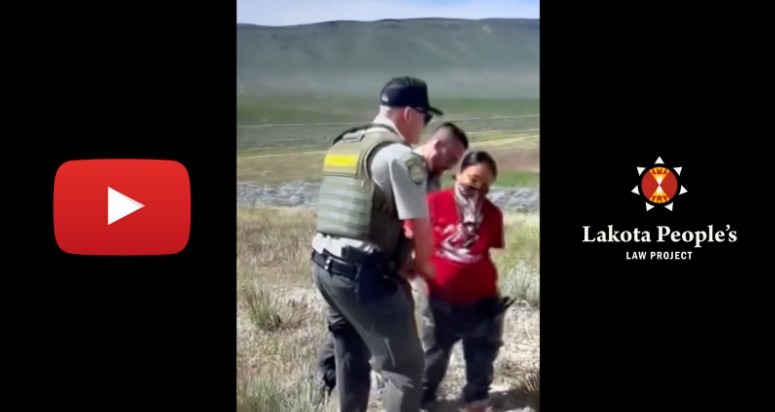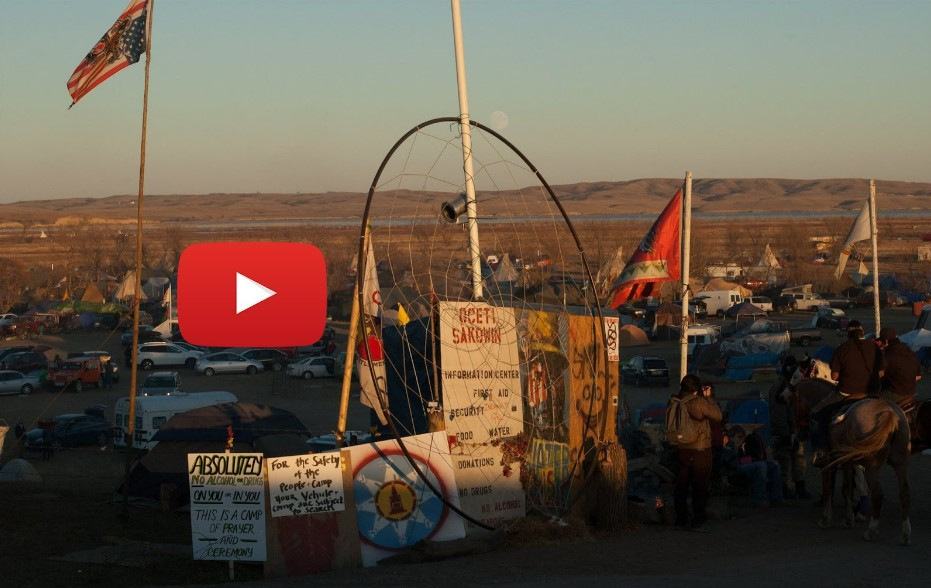https://ictnews.org/news/supreme-court-rejects-navajo-nations-water-rights-trust-claim
Kolby KickingWoman
ICT
The U.S. Supreme Court said the United States is not required “to take affirmative steps to secure water for the Tribe” because that provision is not explicitly stated in the Navajo Treaty of 1868, according to its ruling in a 5-4 vote in Arizona v. Navajo Nation, released Thursday.
The case was the third and final federal Indian law case this term.
Thursday’s decision reverses a ruling by the U.S. Court of Appeals for the 9th Circuit. The tribe cannot proceed with a claim against the Department of the Interior to “develop a plan to meet the Navajo Nation’s water needs and manage the main stream of the Colorado River in the Lower Basin.”
The court also ruled that the tribe cannot present a cognizable claim of breach of trust.
Justice Brett Kavanaugh wrote the opinion and was joined by Chief Justice John Roberts and Justices Clarence Thomas, Samuel Alito and Amy Coney Barrett.
“And it is not the Judiciary’s role to rewrite and update this 155-year-old treaty,” Kavanaugh wrote. “Rather, Congress and the President may enact—and often have enacted—laws to assist the citizens of the western United States, including the Navajos, with their water needs.
Kavanaugh went on to write that the United States has no similar duty with respect to land on the reservation and it would be “anomalous to conclude that the United States must take affirmative steps to secure water.”
“For example, under the treaty, the United States has no duty to farm the land, mine the minerals, or harvest the timber on the reservation—or, for that matter, to build roads and bridges on the reservation,” Kavanaugh writes. “Just as there is no such duty with respect to the land, there likewise is no such duty with respect to the water.”
Related: Navajo Nation water rights case heard before Supreme Court
The Navajo Nation argued that securing water rights to the Colorado River for the tribe fell under the federal government’s trust obligations that were being unfulfilled.
Critics immediately reacted to the decision saying it is a virtual theft of water from the Navajo Nation.
Navajo Nation President Buu Nygren and Speaker of the 25th Navajo Nation Council Crystalyne Curley shared their disappointment in the decision in a joint press release.
As president, Nygren said it is his job to protect the people, land and future and that he remains “undeterred in obtaining quantified water rights for the Navajo Nation in Arizona.”
“The only way to do that is with secure, quantified water rights to the Lower Basin of the Colorado River,” Nygren said in the statement. “I am confident that we will be able to achieve a settlement promptly and ensure the health and safety of my people.”
“Today’s ruling will not deter the Navajo Nation from securing the water that our ancestors sacrificed and fought for — our right to life and the livelihood of future generations,” Curley added.
As he has done in the past, Justice Neil Gorsuch laid out the history of the tribe and the surrounding circumstances that led to this point in his dissenting opinion. He writes that it is known that the United States holds some of the tribe’s water rights in trust and the government owes the Navajo Nation “a duty to manage the water it holds for the Tribe in a legally responsible manner.”
Scroll to Continue
Read More
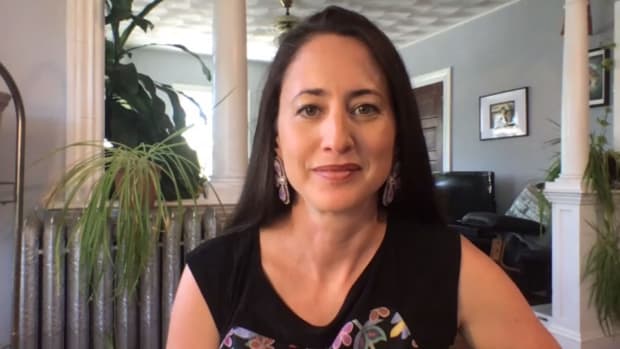
Elizabeth Hoover apologizes for false Indigenous identity
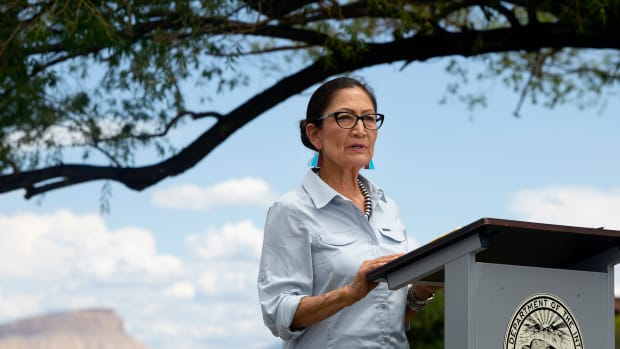
Deb Haaland under fire at Senate hearing
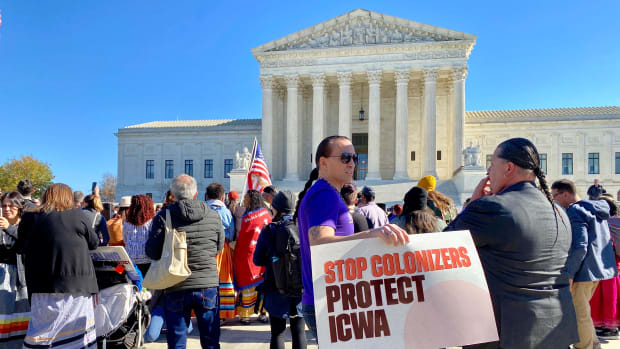
In his concluding paragraphs, Gorsuch writes that the tribe has tried nearly everything and poses the question, “Where do the Navajo go from here?”
“The Navajo have waited patiently for someone, anyone, to help them, only to be told (repeatedly) that they have been standing in the wrong line and must try another. To this day, the United States has never denied that the Navajo may have water rights in the mainstream of the Colorado River (and perhaps elsewhere) that it holds in trust for the Tribe,” Gorsuch writes. “Instead, the government’s constant refrain is that the Navajo can have all they ask for; they just need to go somewhere else and do something else first.”
Derrick Beetso, Navajo, is an attorney and director of Indian Gaming and Self-Governance at Arizona State University Sandra Day O’Connor College of Law. He also is a board member of IndiJ Public Media, the non-profit that owns ICT.
He said the opinion acknowledges that the tribe does have water rights, although they are unquantified.
“The tribe itself is pretty much in the same position they were in before this litigation and in some respects has to go back to the drawing board to figure out how they can get the administration to move forward on assessing their water needs,” Beetso told ICT.
He added that the Supreme Court is just one branch of the government and the Navajo Nation may switch focus to the Biden Administration and Congress in the future.
“The administration can do all the things that the tribe’s asking them to do without a court telling them to do it,” he said. “And so I think the Navajo Nation can shift gears and put a lot of pressure on the Biden administration and see what can get done under this administration.”
Native American Rights Fund executive director John Echohawk, Pawnee, said in a joining statement with the National Congress of American Indians that the decision condones a lack of accountability by the U.S. government.
“Despite today’s ruling, Tribal Nations will continue to assert their water rights and NARF remains committed to that fight,” Echohawk said.
Fawn Sharp, Quinault, called the decision a setback but added tribes and Native organizations will continue to fight for and defend tribal sovereignty and the preservation of Indigenous ways of life.
“Water is necessary for all life, and when our ancestors negotiated agreements with the United States to secure our lands and our protection, water was understood and still is understood to be inseparable from the land and from our peoples,” Sharp said in the statement. “Today, the Supreme Court has once again assisted in the United States’ centuries-long attempts to try to get out of the promises they have made to Tribal Nations by stating that treaties only secure access to water, but do not require the United States to take any steps to protect or provide that water to our people.”
The court ruled in mid-June on the other two federal Indian law cases. The high court affirmed the Indian Child Welfare Act in a major win that was celebrated across Indian Country. The same day the ICWA opinion was released, the court also ruled on Lac du Flambeau Band of Lake Superior Chippewa Indians v. Coughlin.
In that ruling, the court stated that tribes cannot use sovereign immunity in Bankruptcy Court.
Related:
— Supreme Court affirms ICWA
— Supreme Court: Tribal sovereign immunity doesn’t extend to bankruptcy court
The court still has a number of cases to rule on before taking a summer break. The justices will return for the next term starting in October.
The opinion on Arizona v. Navajo Nation can be read here.

